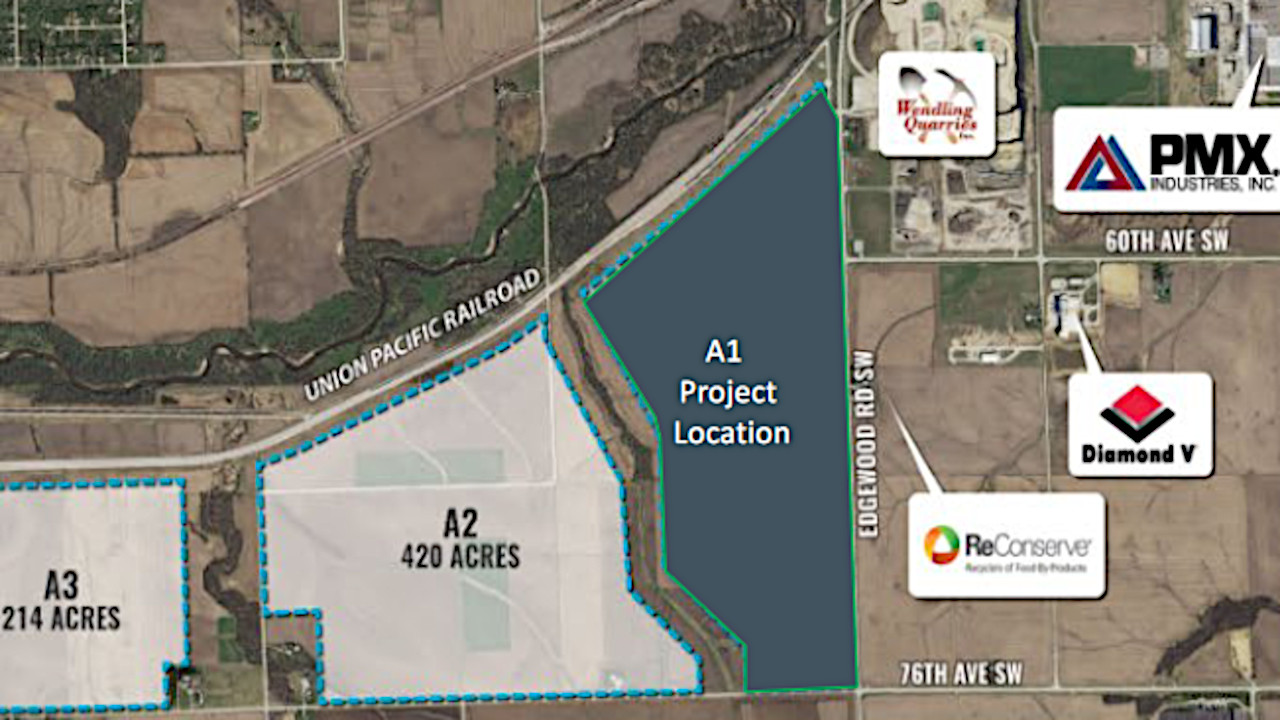
Even as the Cedar Rapids City Council voted unanimously Feb. 27 to authorize a development agreement for a data center project on the city’s southwest side, council members were eager to emphasize the potential project’s historic impact on the city’s economic development legacy. “We have never done a development like this,” council member Dale Todd […]
Already a subscriber? Log in
Want to Read More?
Get immediate, unlimited access to all subscriber content and much more.
Learn more in our subscriber FAQ.
- Unparalleled business coverage of the Iowa City / Cedar Rapids corridor.
- Immediate access to subscriber-only content on our website.
- 26 issues per year delivered digitally, in print or both.
- Support locally owned and operated journalism.
Do you want to read and share this article without a paywall?
Click here to purchase a paywall bypass linkEven as the Cedar Rapids City Council voted unanimously Feb. 27 to authorize a development agreement for a data center project on the city’s southwest side, council members were eager to emphasize the potential project’s historic impact on the city’s economic development legacy.
“We have never done a development like this,” council member Dale Todd said. “I would suggest that you could take 30 years worth of development agreements and it still wouldn't add up to what we're doing here. So it's a historic moment for (city manager) Jeff (Pomeranz) and your team.”
Under the development agreement, Heaviside LLC plans to develop “one or more” data centers in the Big Cedar Industrial Center, near the intersection of 76th Avenue and Edgewood Road SW.
The project would comprise a minimum capital investment of $576 million, according to the proposal.
While Heaviside LLC is listed as the project’s developer, there’s currently no indication who would own or operate the Cedar Rapids data centers.
Construction of the project is expected to begin within three years of the effective date of the development agreement.
The project would comprise the first development in the Big Cedar Industrial Center, Iowa’s largest industrial site at 1,391 acres, which includes an 890-acre parcel designated as the state’s only certified Mega-Site.
As proposed, the project would qualify for economic incentives under the city’s Local Match Economic Development Program, which authorizes city sponsorship of the unnamed company’s application for financial incentives under the state of Iowa’s High-Quality Jobs program. The incentives would comprise a 20-year, 70% tax exemption, subject to meeting employment thresholds and an approved high-quality jobs application.
The Iowa Economic Development Authority’s board is slated to consider the financial incentive application at its meeting March 22.
Under the agreement, if the high-quality jobs application is not approved, the city would agree to provide comparable Tax Increment Financing (TIF) rebates in lieu of the tax exemption.
The project would also include the addition of at least 31 full-time employment positions, all at or above the high-quality wage rate, which was $24.20 per hour in Linn County as of 2022.
Council member Ann Poe said she felt the construction jobs that would be created for the project should be locally sourced.
Bill Micheel, the city’s director of economic and development services, said that as the project ramps up, it could easily comprise more than 31 employees.
“What we've observed in other communities where these exist is that there (are) certainly construction jobs that materialize from these projects, in addition to often other support businesses that pop up to support a rather large project,” he said. “They're using lots of concrete and lots of building materials, and they get a lot of that locally, in addition, there's contractors, all of these things related to construction, and then the support services that pop up as this project gets rolling – they need all sorts of different support services that materialize.”
A number of data centers have come to Iowa in recent years, developed by large-scale e-commerce and technology companies such as Google, Meta, Microsoft and Amazon.
Council member David Maier asked about the lack of information regarding the business that would operate the data centers, and when additional information might be forthcoming. Mr. Micheel said that information generally emerges as state officials consider a project’s High-Quality jobs incentive application, but didn’t specify when that information could be revealed.
Council member Tyler Olson said that while construction jobs for projects like this are often considered to be temporary, the work in this case could span a number of years.
“If there's going to be more than one (data center), it could easily turn into a 15-year construction project, and at that point, that's a permanent job,” he said. “There will be people that spend, if not their whole trades career, a pretty good chunk of it, working there, so you're talking about hundreds of what I would call permanent jobs, in addition to the ones that will be employed by Heaviside.”
Officials also noted that the Cedar Rapids data center development, with its potential for heavy use of utilities, could lead to an overall lowering of local water and electrical rates, and that the project would become a significant contributor to the Cedar Rapids property tax base.
“Ultimately, some future city council in 20 years, is going to have a massive amount of property tax valuation that's going to start flowing into the city budget,” Mr. Olson said. “I probably won't be here to see that, but somebody is going to thank us for it.”
The Cedar Rapids data center development agreement would include a number of financial incentives, including:
- A 20-year, 75% economic development rebate of franchise fees collected by the city through the electrical provider for each data center constructed.
- A Gray Water Discharge Credit, under which the city would provide a monthly credit of $1.30 per hundred cubic feet of gray wastewater discharge, with a per-unit credit that would escalate annually at 2.5%, up to a maximum of 57% per unit sewer discharge rate.